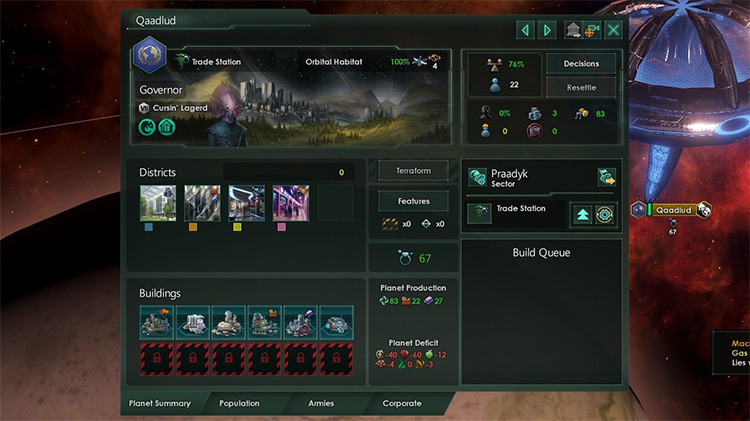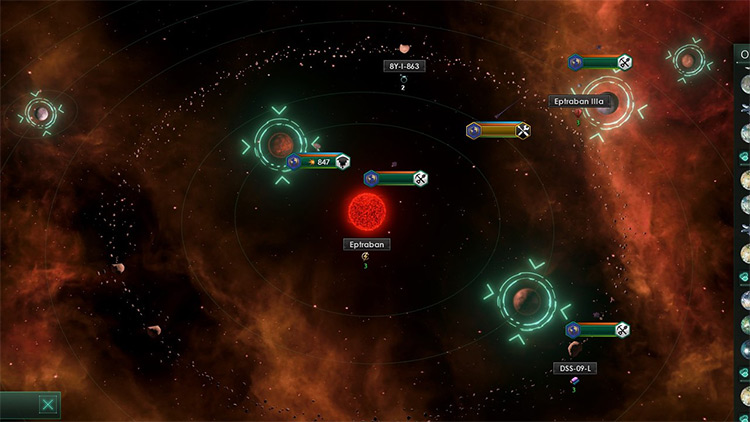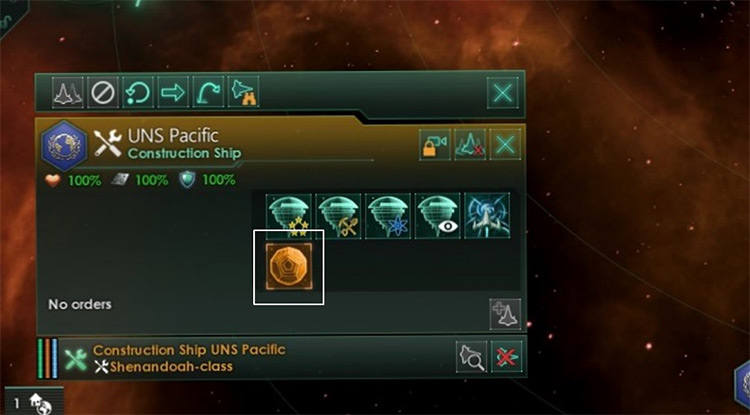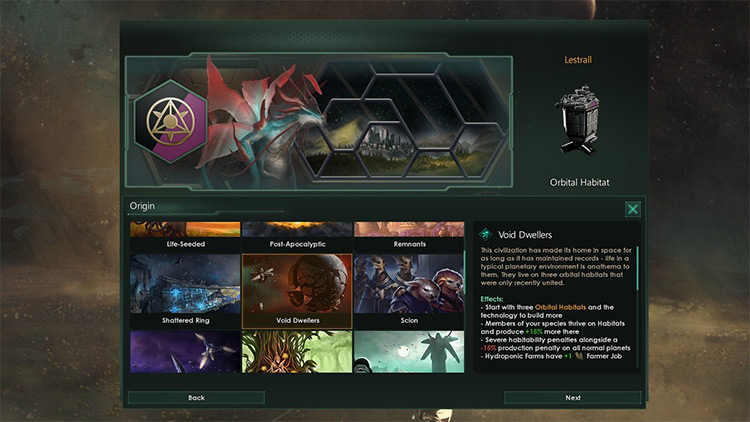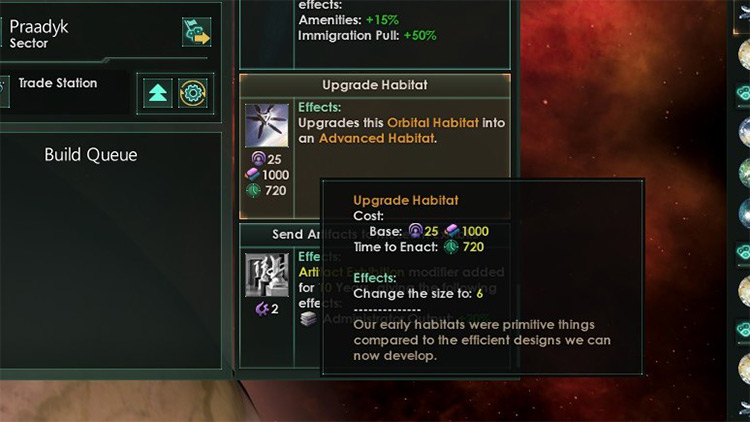Granted, they have fewer buildable districts compared to most planets because of the limited space, but you can upgrade them to have more district slots later. Habitats also have unique districts that help you specialize their output, making them worth having in the mid to late game to help you manage resource production in your empire. In order to build a Habitat, you will need to research the required tech. You will also need either the Utopia DLC or the Federation DLC.
What Do Habitats Do?
Habitats are a type of megastructure, and one of two types that’s habitable by your people (the other one being the Ring World megastructure). These habitats function similarly to colonized planets, and you manage them pretty much the same way, with some minor differences:
They have 4 unique districts; 5 if you’ve built your habitat over a planet with certain resource deposits Colony development is three times faster compared to a colonized planet You can only unlock extra building slots by upgrading the Habitat’s Colony Capital building, since you can’t build City Districts in Habitats Planet Capacity (stat that determines your planet’s maximum population) increases with each new district built by 3 Has a flat Habitability rate of 70% to all species, without adaptability modifiers Generally smaller than planets, with only 4 available district slots at start, but can be expanded to 8 with the right technology
How To Build a Habitat
Building a Habitat in Stellaris can take time and a lot of resources. That’s why you rarely see them built before the mid-game. There are also certain requirements you have to meet before you’re able to build any:
You need to research the “Orbital Habitats” technology from the Engineering tech tree They must be placed on a planet. Trying to place them on a Moon, Star, Black Hole or Asteroid wouldn’t work The planet should be fully surveyed The planet should not have an Anomaly present The planet must not be colonizable
Note: If you build a Habitat on a planet with resource deposits, you will not be able to use them. If you’ve already built a Mining Platform or a Research Station there, they will be destroyed once the Habitat is completed.
Building Your Habitat (Step-by-Step)
Once you’ve found a suitable planet, you can start building your Habitat. Note: The ability to build Habitats is only available with the Utopia DLC, or a species with the Void Dwellers origin from the Federation DLC.
How To Upgrade Your Habitats
At the start, Habitats are not as impressive as certain planets. But once you’ve upgraded them, they become more versatile, and their benefits are multiplied. Each upgrade will increase your Habitat’s District capacity by 2. A fully-upgraded Habitat will have 8 available District slots. Here’s how you upgrade your Habitats to keep them viable late in the game:
Are Habitats Worth Building?
Yes, Habitats are worth building, and they’re a great investment for the late game. Of course, it all depends on how you use them. That said, Habitats do have their disadvantages. It’s up to you to decide whether building them will give your current game an advantage or not. Here’s a brief list of the Pros and Cons of Habitats to help you decide.
Pros
They’re versatile. You can build them on most systems with a planet. They increase Population growth in your system, not just the Habitat, which will help improve development. Habitat Districts produce more resources than their planetary counterparts. They can drastically improve a planet’s resource yields. A planet with a Mining Station producing only 2 Minerals a month can have a Habitat that can instead produce 100! There’s no limit to how many you can build. If a Star System has 7 suitable planets, then you can build a Habitat on each of them. They can prevent invaders from capturing a system completely. Habitats act as planets, so foreign empires will need to land armies into them to capture them, buying you time.
Cons
They’re expensive to make and very expensive to maintain. They require large amounts of Alloy to build and a lot of Alloy to maintain, which can add up. They don’t produce Food Researching the required tech will take a lot of time and a lot of research points
